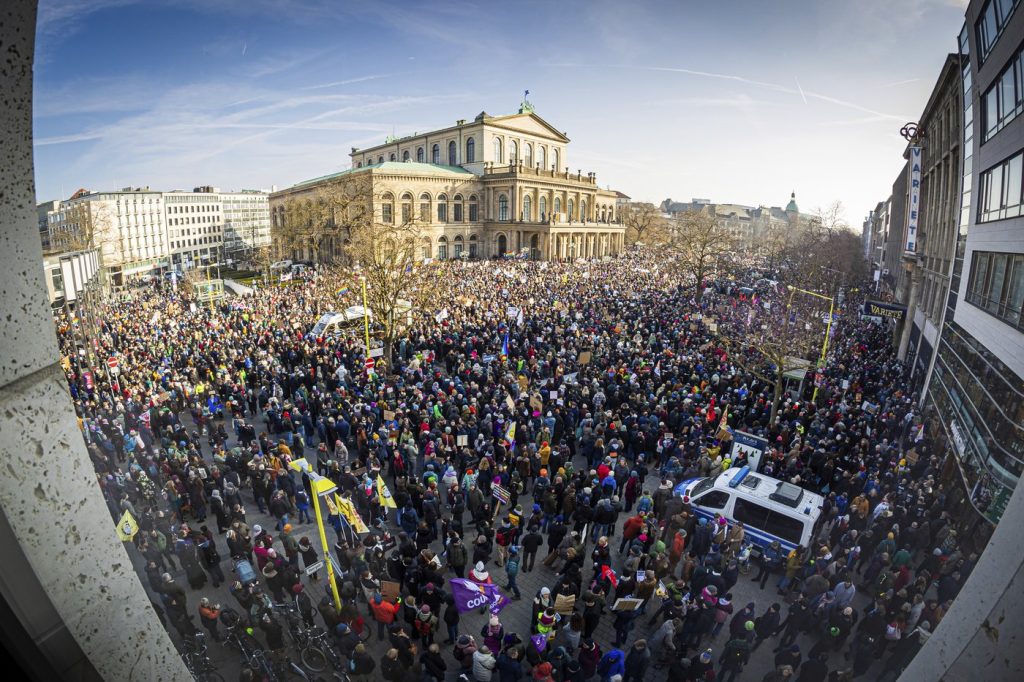MUNICH, Germany (AP) - A massive demonstration took place in Munich, Germany, where more than 200,000 people gathered on Saturday to protest against far-right extremism ahead of the nation’s general election scheduled for February 23. The rally comes as the far-right, anti-immigrant party, Alternative for Germany (AfD), has gained momentum, securing second place in recent polling and leading to widespread concerns about its potential influence in the upcoming elections.
The protest, held at Munich’s Theresienwiese—an iconic venue that hosts Oktoberfest annually—saw a turnout even larger than expected, with estimates reaching up to 320,000 participants. Many demonstrators carried anti-AfD placards with messages such as, “Racism and hatred is not an alternative,” signaling a strong stance against far-right ideologies.
The rally was organized and supported by a coalition of activist groups, religious organizations, and local institutions, including the Munich Film Festival and prominent soccer clubs like FC Bayern and TSV 1860. According to reports from police, the demonstration was peaceful, reflecting the organized nature of the event and its supporters' commitment to a harmonious protest.
Across Germany, similar demonstrations were reported, with significant crowds gathering in cities including Hanover and Rostock. This wave of protests mirrors a growing resistance against far-right sentiment that has been building in recent weeks. Activists hope these rallies will not only spotlight the AfD but also other far-right parties gaining traction throughout Europe, as well as the implications of political decisions being made in the United States under President Donald Trump's administration.
Among the subjects of criticism during the protests is Friedrich Merz, the leader of the center-right Christian Democratic Union (CDU) and a front-runner in the general election. Protesters have voiced strong opposition to recent legislative proposals made by Merz that advocate for stringent new migration rules, which have garnered backing from the AfD. Critics argue that by aligning with the AfD, Merz and his party are betraying Germany's post-Nazi political consensus that previously mandated all democratic parties to refrain from collaborating with far-right factions.
Merz, however, has maintained that his position remains unchanged, insisting that he does not collaborate with the AfD. The AfD itself, founded in 2013, entered the national parliament in 2017, capitalizing on the political climate that arose from then-Chancellor Angela Merkel's decision to permit a significant influx of migrants into Germany two years earlier.
As the general election approaches, the growing protests highlight a critical moment in German politics, where the rise of far-right sentiments is encountering robust opposition from a diverse array of groups committed to upholding democratic values and championing inclusivity. The demonstrations are a clear indication of public sentiment against the normalization of far-right ideologies and an appeal for greater participation in the democratic process, underscoring the importance of an active civil society in shaping the nation’s future.










